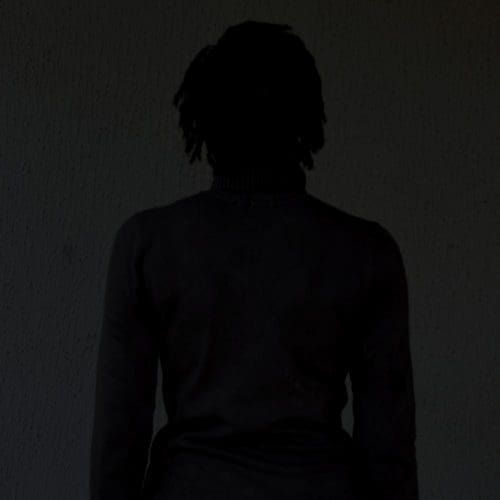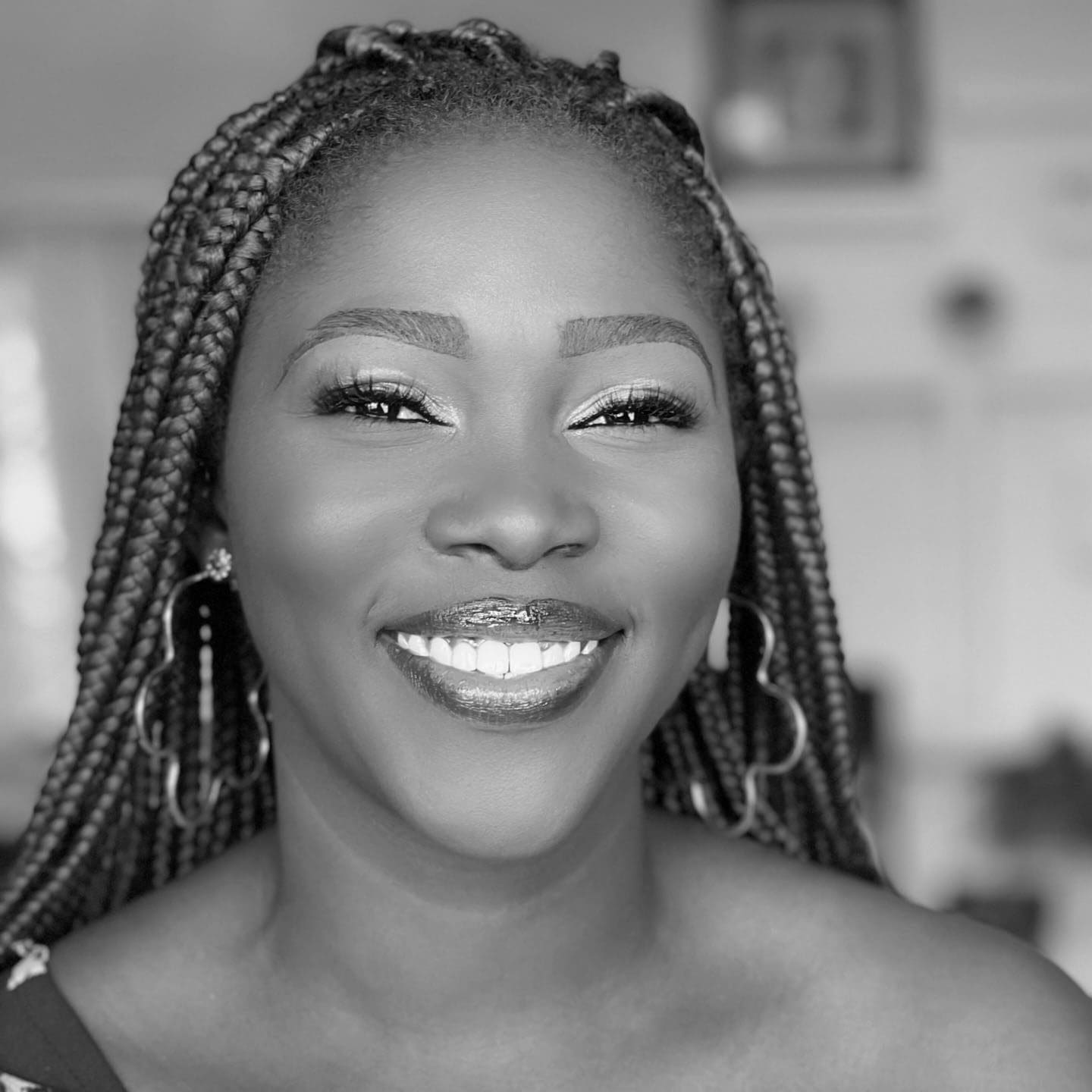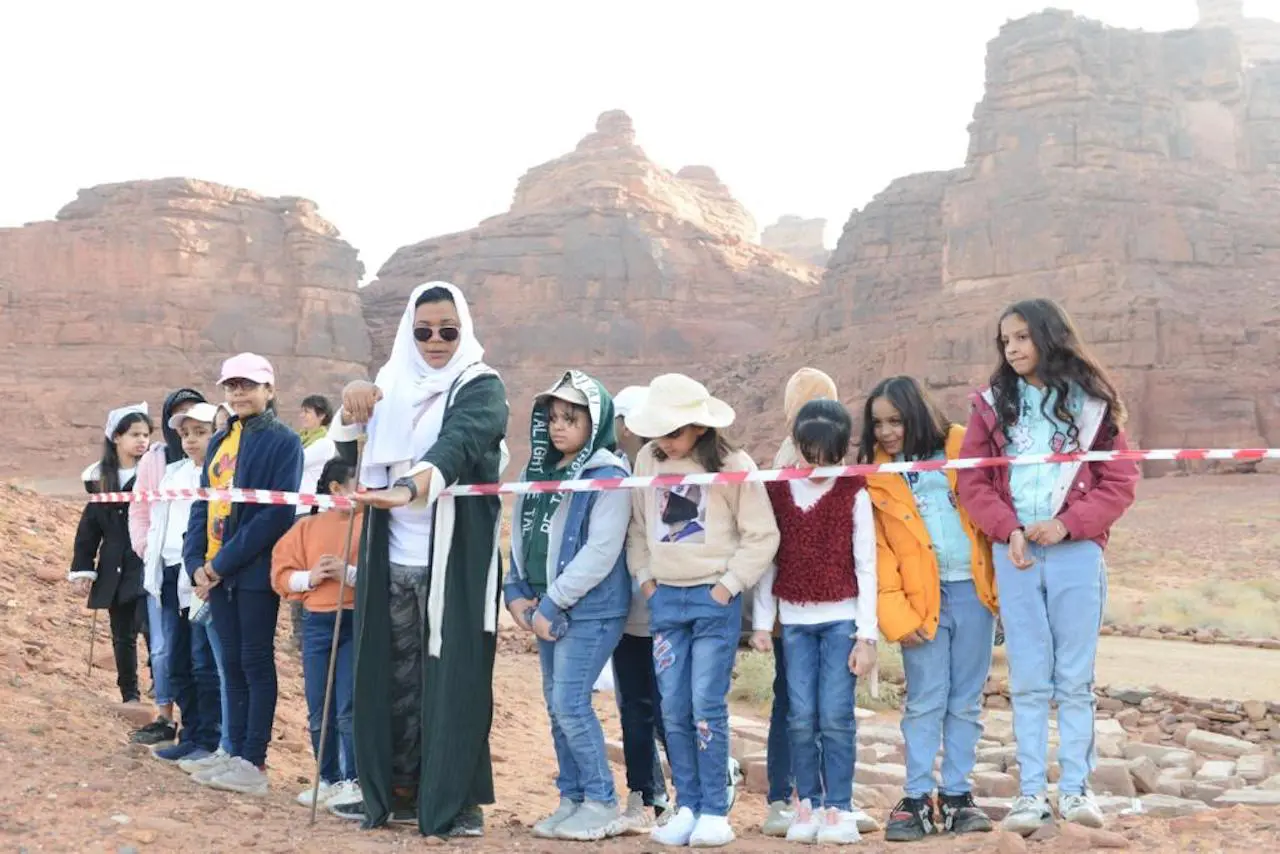Child bride in Nigeria survives domestic abuse, attempted human sacrifice
I took off my clothes and wrapped the red fabric around me. [The man] told me to kneel and covered my face and neck with white powder. He said, close your eyes and lay down on the ground. As I laid on my back, the man began shouting phrases that sounded more like magic then prayers. Then, he shouted, “This is not the woman we need for the sacrifice!” I leapt to my feet and began running.
- 2 years ago
July 31, 2022

Trigger Warning: This story contains graphic content which me be difficult for some readers.
NASARAWA STATE, Nigeria ꟷ I became a child bride in Nigeria at 15 years old. After enduring years of domestic abuse, my husband sold me to a tribe for a human sacrifice. I survived and found my way to freedom.
Today, I run my own business and care for my three children – far from the attacks that left me helpless for so many years.
28-year-old bus driver pursues child bride
As a 15-year-old high school freshman, I rode the bus home from school in Dunduma. My dad served as a military officer in the Nigerian Army. The bus took me all the way back to the Army barracks where we lived in Nasarawa State.
One day, as I climbed onto the bus – talking with my friends and eating African shish kebabs – the driver looked at me and said, “Keep your money, fine girl.” Confused by the gesture, I asked him to explain.
“You would not understand,” he responded. I began feeling uncomfortable as time went on and the driver refused my bus fare. I threatened not to take the bus anymore, but my friends urged me on.
Then, one evening, my mother called me from my chores. She said I had a visitor. Seeing Sheyi standing there astonished me. My mom asked why he came; she recognized him from the bus. Sheyi said he was looking for me.
I wondered, “Did I leave something on the bus?” The army did not permit civilians to enter the barracks after dark. What could be so important he risked entering at night? Then, right in front of my mother, he professed his love for me. Sheyi asked for my hand in marriage. I was 13 years younger and a minor. I told him no. My education remained my top priority.
Falling in love and facing her father’s fury
When Sheyi came to our house that night, I told him I was too young to be married, but he continued showing up. He brought me the same food he saw me eating on the bus. We would sit outside and talk. As time went on, I got to know him, and fell in love.
Although I felt excited, I dreaded my father finding out. As young girls, my father frightened my sister and I with the Nigerian myth that if a man touched you, you would immediately become pregnant. Father insisted if that happened, we would drop out of school and have no future. As a result, my sister went on to university and I swore off boys. I wanted to become a nurse like my neighbor.
Father always scared me. I spent little time with him during my years in primary school and junior high. I lived with my grandmother in her village. When it came time for secondary school, father called for me to come home. My new life proved tense and fierce. My brothers and sisters scampered around when dad got home from work. Mother constantly worried because he yelled and hit us. Then, Sheyi came along.
My father arrived home from work one day to find him waiting outside for me. “What does that man want from you,” my dad shouted. To protect me from a beating, my mother ran in and said Sheyi had come to visit my big sister. It only delayed the inevitable. The day came when my father found Sheyi and I sitting together outside.
From hiding their relationship to getting married
My father’s fury exploded. When I said Sheyi wanted to marry me, my dad shouted, “What about university?” He did not want me to risk forfeiting my dreams. I cried and begged to marry Sheyi, and even said his family would pay for my schooling.
For a time, dad tried to keep us apart. He had the guards in the barracks watching for him, but nothing could keep me from Sheyi. When things erupted with my dad again, I pulled out a knife and tried to kill myself. My mother pleaded for him to listen and begrudgingly, he approved the marriage, but first he issued a warning.
My dad said he believed something to be abnormal – almost fetish-like – about the relationship; and that I would find it extremely difficult to blend into Sheyi’s ethnic group, which was very different from our own. When Sheyi’s family came to meet mine, my father rejected the customary bride price. Instead, he asked them to commit to the completion of my education.
After everything was finished, my dad turned to me and said, “You are on your own now.” It felt like a premonition of things to come and fear overwhelmed me. I realized, in that moment, I had no support. I married Sheyi in a traditional Yoruba wedding. My parting words with my father still haunt me.
The abuse begins immediately
Two days after moving in with Sheyi, he asked me to cook a traditional Yoruba soup. At 15 years old, I had no idea how to cook, let alone make this dish. “You are a woman, figure it out,” he responded.
Despite my best efforts the Amala leaves were half cooked and the Ewedu was watery. Sheyi erupted in anger. He cursed me and my parents and stormed out of the house. A few hours later he returned with his mother, who scolded me more. I cried as she mumbled phrases in her native language. “You better stop crying and grow up,” she asserted.
A few short weeks later, I started feeling sick. I became pregnant in our first month together. I remembered Sheyi and his family’s promise to my father. After I had the baby, I wanted to return to school but Sheyi and his family refused. I nursed my son for two years before I had the courage to ask again. Sheyi just smiled and said, “I am your husband now. I have the final word.”
From that day forward, Sheyi did little to provide for me and my child. I began selling supplies in the neighborhood to earn a little money. I became silent and melancholy, always afraid to speak up for fear of being punished. He began sneaking out at night. If the food I cooked displeased him, he hurled it in my face. A great sadness consumed me. Then, something terrible happened.
The pattern of domestic violence: she returns to her abuser
I came home to find Sheyi with another girl in our bedroom. He claimed she was his sister – a silly lie. When I asked why he did this to me, he began to physically assault me. He issued an attack so ferocious, I passed out, only to awake in a hospital bed, my neighbor by my side. Once again, doctors delivered the news. I was pregnant.
Sheyi arrived a few days later. I had been bleeding and the hospital staff told him I needed to be on bed rest during my pregnancy. He shouted, “Who is she carrying? Jesus Christ?” Back home he beat me again and again. I eventually lost the baby due to an Ectopic pregnancy. Uninterested in caring for me, he and his mother attempted to return me to my parents, like a defective product you take back to the store.
Standing in my father’s office at the Army barracks, Sheyi told my parents I needed “proper training.” Father fumed with rage. “She is a child,” he shouted. As Sheyi continued arguing, my father pulled his gun from the holster and pointed it at Sheyi. With my mother begging for them to stop, father chased Sheyi from the office, leaving me and my son Samuel standing there. “Look what you have done to yourself,” my father snapped. “I told you, but you wouldn’t listen.”
After several weeks, Sheyi sent family members to try and retrieve me, but my father refused. I genuinely believed I loved my husband, so I begged to go back to him. Father gave me the money for a taxi and sent me on my way.
Husband lies to get her out of the house
The abuse worsened but I pushed on, having more children whom I couldn’t support or send to school. I miscarried several times but kept trying because Sheyi grew more violent if I refused. I thought things could not get any worse, until they did.
One afternoon, Sheyi brought a young tribal girl named Toyin to the house who had experience with herbs. He said she could help me with my miscarriages. I did not believe him, but Toyin encouraged me to go with her to a prayer house. “Your husband’s abuse is severe,” she told me. “The prayer can stop that too.”
The next day at 6:00 a.m., Toyin arrived. I had been up for some time, getting my kids ready for school. She and I took a bus to a village near Nigeria’s capital. I prayed fervently on the bus, asking the prophet to resolve my marital issues. From the village we rode bicycles into the bush. When the bikes could no longer travel on the path, we walked. Concern consumed me.
Eventually, we spotted a thatched building along the river. I fought the urge to turn and run. It looked like we might be the only living creatures out there. Terror consumed me, but I believed the prayer could mend my family.
A middle-aged man clothed in white and red material greeted us the moment we entered the building. My guide spoke to him in Yoruba. I could not understand their conversation. I thought perhaps she was telling him about my situation so he could help me, but his face told another story. He looked repulsed by me.
Young woman nearly becomes a human sacrifice
The man pulled out a red piece of material and instructed me to undress and tie it around my body. I asked for a changing room, and he responded angrily, “You are not serious! I’m not leaving this room.” Toyin gestured me on, so I took off my clothes and wrapped the red fabric around me.
He told me to kneel and covered my face and neck with white powder. Then, he said, close your eyes and lay down on the ground. I glared uncomfortably at Toyin, but she signaled me to calm down. None of this felt like the spirit of prayer.
As I laid on my back, the man began shouting phrases that sounded more like magic then prayers. I realized quickly this man was not an herbalist. I opened one eye to look at him. His next words shocked me.
“This is not the woman we need for the sacrifice,” he yelled. I leapt up, struggling to my feet, and began running, leaving behind my clothing and handbag. With no sense of direction, I ran and ran through the bush, praying for God to help me. The gravel and sticks tore up my bare feet.
After a very long time, I came upon a woman and her family on a farm. They looked terrified when they saw me. “You are lucky to be alive,” the woman told me. “The watch men in our village only find mutilated dead bodies near that river.”
She wrapped some cloth around me and cleaned me up, then paid for me to take the bus home. I don’t think I could find that place again if I tried.
The beginning of the end of the marriage
On the bus ride home, I tried to convince myself my husband had nothing to do with the ritual. I thought about what life would be like for my children if I died. The driver asked why I was crying, but I said nothing.
Back home and late in the day, my children had not eaten. I took a shower and made food for them, all the while fearing the tribesman would come for me. Sheyi did not come home and when I went to bed, every time I closed my eyes, images of the man sprung into my mind. I could not sleep.
The following morning Sheyi came in and found me. “What are you doing here,” he shouted. I knew in that moment Sheyi sent me to die. When I confronted him, he said, “If you don’t leave my house, I will kill you.” Afraid he might kill my children, the next morning I packed our luggage and left for my parent’s house.
Sheyi’s demeanor changed from the night before. “How dare you,” he snarled. He threw my personal bags outside and slammed the door shut. I appealed to his family to intervene. Gathered together at the house, Sheyi told them he no longer wanted to be married to me. I agreed, but he did not want the children to go with me.
He offered to let me stay with them, but said he would find another woman to have more children with. Because I did not want to lose my children, I agreed.
Woman files for divorce, leaves her abuser for good
Weeks later, Sheyi stopped coming home. His absence gave me a break from the fighting, but a bigger problem emerged. The landlord informed me Sheyi hadn’t paid rent in sixteen months, and that he wouldn’t pay rent until I left. I found a one-bedroom apartment, packed my children up, and left, but my freedom would be short-lived.
Sheyi arrived at the apartment, demanding the children. I refused. Days later, he took them from school against their will. I hurried to his house to find them. Sheyi already had a woman living there. By now, I could care less about her. I just wanted my children. I went to my neighbor for advice.
She helped me find legal counsel and I filed for divorce. I got a job selling footwear at the market when, one afternoon, I saw my oldest son selling water nearby, when he should have been in school. “Who sent you here,” I asked him. “Big mommy,” he responded – the wife to Sheyi’s older brother. My son told me their father had dumped them off at her home because his new wife didn’t want them there.
Following my son back to the house, I saw something disturbing – my daughter, kneeling on the ground with her hands in the air, holding a huge stone as my sister-in-law and her children watched television. “What has my child done to deserve this,” I cried. My brother-in-law called Sheyi and he let me have my kids back. That day marked the end of my nightmare.
I may not be a nurse today, but I have a business and my three gorgeous children. We escaped Sheyi, and we are doing okay.
For another story from Nigeria on practices adversely affecting women and girls click here.











































































































































































































